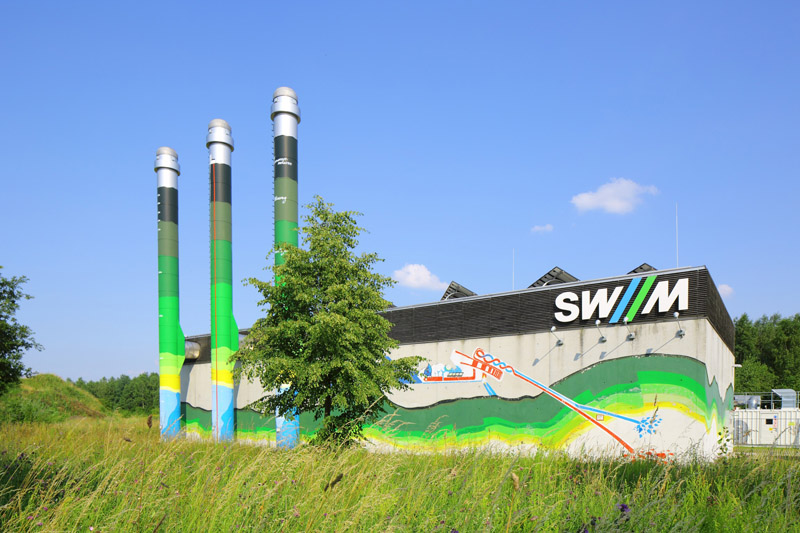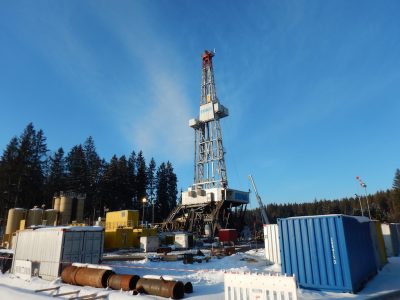More geothermal for green district heating in Bavaria
With increasing pressure to decarbonise local heat supply, municipalities all over Europe are increasingly looking at geothermal as a green solution.
Cities and municipalities in Germany and elsewhere must get their heat supply as CO2-free as possible in the next few years. Therefore, geothermal energy is gaining in importance as an energy source. “Geothermal use is becoming more and more of a public interest, not only in Bavaria, but also throughout Germany and Europe,” said Jochen Schneider from the organizer Enerchange at this year’s Praxisform Geothermie.Bayern geothermal event held in late October 2021.
The event took place this year in the community center Pullach near Munich as well as virtually. Among other things, speakers advocated using geothermal heat primarily via district heating networks.
In the building sector alone, CO2 emissions must drop by 44% by 2030 (from around 120 to around 67 million t CO2), explained Lena Pickert from the Institute of Energy Economics at the University of Cologne (EWI) on October 28 as a speaker at the practical forum. She referred to the DENA lead study. In addition to the urgently needed building renovation, the expansion of connections to heating networks is an essential component in order to be able to achieve the climate targets. As a result, the energy sources for heating networks will become more diverse – depending on the location, sources such as waste heat, thermal waste, large heat pumps, solar thermal or even geothermal could be considered.
As a speaker at the Praxisforum, Harald Rapp from AGFW also emphasized the importance of district heating networks for cities and municipalities. The expansion and new construction is essential, as green heat reaches the buildings via networks without large investments being necessary in the buildings. He also advocated using all available sources – depending on the region and situation. There are now more and more municipalities that also want to use geothermal energy. Rapp emphasized, however, that many low-CO2 generation plants are needed for change: “We have to position ourselves broadly here”.
For the AGFW experts, this includes not only geothermal energy, but also cogeneration. “We will also need CHP in the future because it uses fuels efficiently. It is also a basic technology for green gases as fuels ”. In this context, Benjamin Richter from Rödl & Partner specifically pointed out the funding opportunities for innovative CHP systems that have been tendered since 2018. Here, the KWKG has laid the first incentives for geothermal energy as a renewable source in combination with CHP. These are the first incentives in the right direction.
For several years now, Stadtwerke München has been clearly demonstrating that it is possible. The city and the municipal utilities want to provide district heating in the Bavarian capital in 2040 in a CO2-neutral manner. To this end, the district heating networks and geothermal sources are being continuously expanded. Currently, 35% of the heat required in Munich is provided by district heating, the other part mainly decentralized by natural gas.
By 2040, the geothermal output in Munich is to increase from the current 25 MW to up to 400 MW. To this end, the thermal power station, for example, is being expanded, and further geothermal systems are to be developed – if possible. “Geothermal energy – like any other renewable source – does lead to higher costs,” said Herbert Koschel from SWM at the Geothermal Energy Practice Forum. However, deep geothermal energy is still comparatively cost-efficient.
In order to increase acceptance among the population, smaller cities and municipalities in particular could also work together with cooperatives. Pascal Lang, chairman of the board of the Energiegenossenschaft Inn-Salzach eG, presented projects of his cooperative. One of these projects is a heating network in the Bavarian municipality of Emmerting, which was only made possible by the cooperative. The network went into operation at the beginning of October 2021. Further projects are being planned. Whether with geothermal energy or not, “it is important that people are taken along,” says Lang. There is currently a strong demand: “People want local markets”. Citizens can take heating networks “into their own hands”, particularly through cooperatives.
The Geothermal Energy Practice Forum took place for the ninth time this year. In addition to specialist lectures, the event also offers workshops on various economic and technical aspects of geothermal systems.
Source: Energie und Management


















